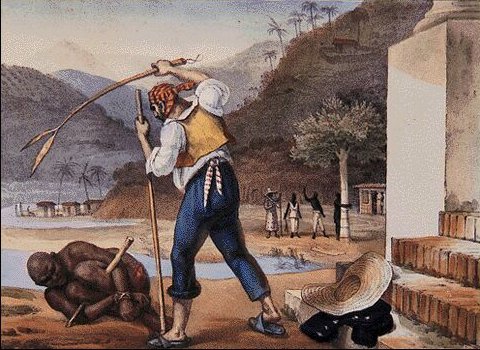Brazil - The Making of a Novel - Part 17
The Journey - Recife July 28 -- August 13, 1980
The Journey - Recife July 28 -- August 13, 1980
July 30: Not always possible to maintain an enthusiastic “high” - Once in a while, as now, it slips and you feel a real stranger.
Edson Nery, library “scientist” at the Fundação Joaquim Nabuco, a lay Benedictine monk, could not be nicer but has no concept of what it takes to write a book like Brazil. Yesterday was spent poring over museum collection - useful; today was passed in Foundation's library with excellent old engravings, also useful but dangerous:
I have to get out, experience and “look.” U.S.A. has best libraries in the world and when I'm back home I can sit in them for as long as is necessary. Here, I've got to see not pages but people. And the past insofar as one can separate present sights and scenes from what has been.
 |
Recife, Pernambuco, Brazil
|
Edson is a dear librarian of special repute, no doubt, but too close to his books and eleven cats to see the finger-dirtying reality. A contemplative man, he himself says, grown pessimistic about the world and seeking his main solace in Sunday hours spent with the Abbot and Prior of the Monastery at Olinda.
So, though the day was spent in hard research and I got many visual images of use, I'm wary of over-involvement with the Fundação. Maybe they will come up with an engenho to visit and, of course, there's my interview with Gilberto Freyre himself. But I'm determined that these hours shall not be “book-bent.”
July 31: Once again proved that to accomplish things in the tropics you have to step beyond the lethargy so easily induced.
Day started with call to Edson Nery at home complaining very indirectly about lack of cooperation. Well, aside from suggestion that I go back to the library to look at more pictures this morning as planned, Edson showed clear understanding of my needs. A car will be arranged!
And it is: In afternoon my Recife travels begin in earnest. I'm also invited to dinner tomorrow night with anthropologist Dr. Robert Motta and friends
Afternoon visit to Iguaraçu, site of first church in Brazil, built 1535/plus Jesuit church/and third church atop hill. All vital to story since it is vicinity between here and Recife proper that I will place Cardosos (“Cardoso” family later changed to “Cavalcantis.”) Have to find way to move to second locale. Will probably be after Dutch invasion with re-start further away.
 |
| Convento de São Francisco - Olinda Vladiney Pimento/Wikipeida |
My guide, Amalia Correa, proves as fascinating as the historical aspect. Her brother was Minister of Agriculture under Goulart. Father was federal deputy from Pernambuco representing Bom Jardim to the north. Family is obviously one of the older political ones with classic coronel (Cardoso?)and wide connections.
Memorable anecdote of Amalia's sister who teaches at a favela in the evenings: "Simple things that people will understand like words for food etc. She explained 'meat.' Woman in class responded: 'Oh, I know meat but it is so long since I have tasted it.'"




